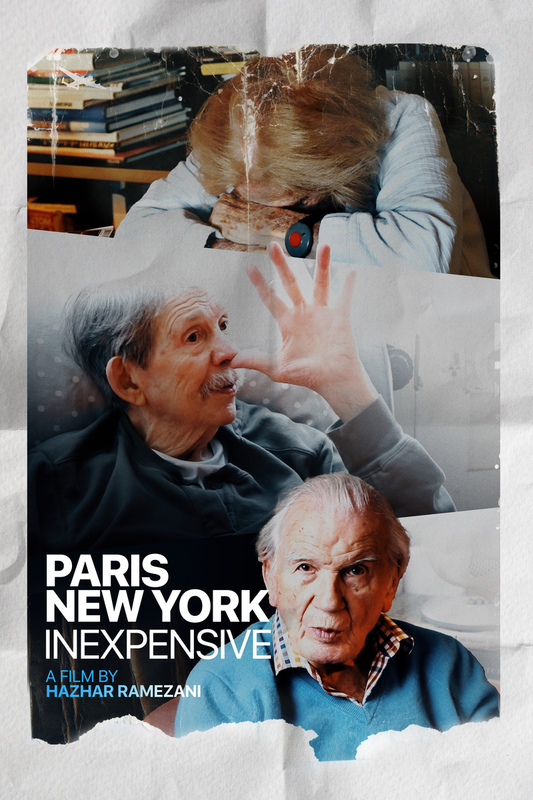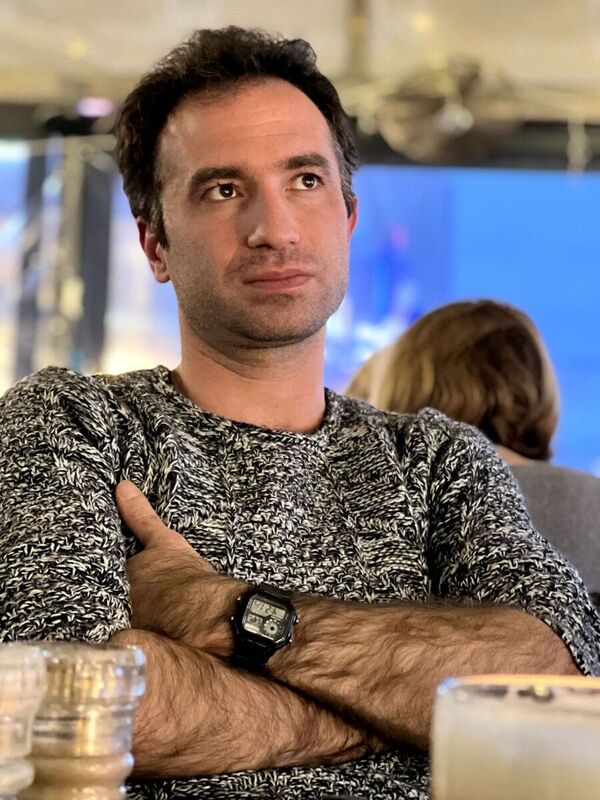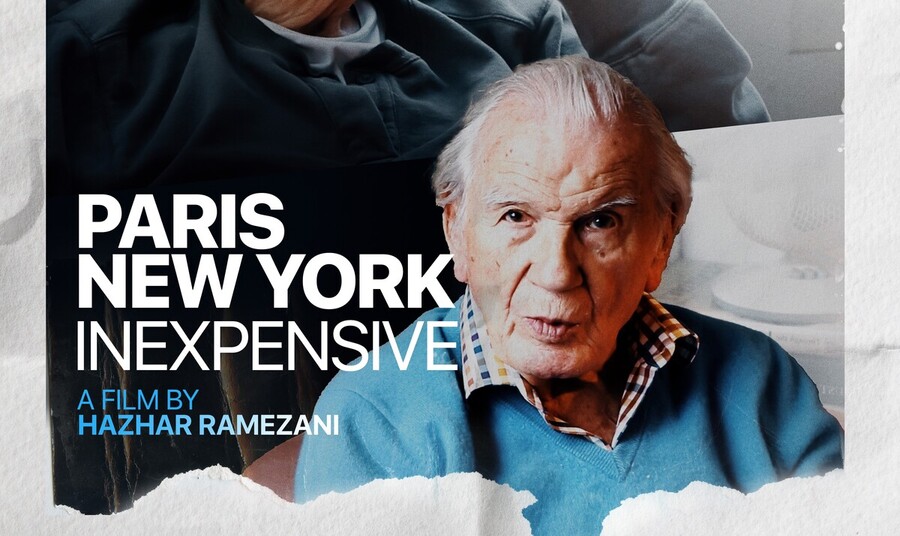“Paris New York charter” is a documentary film directed by the Kurdish director “Hazhar Ramazani” from Bokan who is a student at Sorbonne. This film has been played in several international film festivals and has won some prizes.
Ramazani has won the best documentary film category at the “Pure Magic” film festival in Amsterdam.
It also won “The Athena’s Monthly” reward in 2022, it has been selected as the best-documented film in Germany’s “Mabig” film festival and the jury of the “Shambala” film festival in India also chose this documentary to win the prize.
The film has three chapters. In each chapter, a monologue is narrated by an elderly character who retails their “life experience” story for the director. Since the characters are not able to move a lot and the film does not desire to, the locations are rarely changed. The director of this documentary does not attempt to create a film with exotic locations or special music features but what makes this film so special is the narration of these three characters’ amazing experiences which makes the viewers listen to every word they say and ponder upon them.

In the first chapter, the director documents his first character’s last days in life whose name is James. This character used to be a university professor who is originally from the US but has lived in Paris for the last fifty years. He loves life. He has taught at the new Derry University in Paris for the past thirty years. He has always hosted his friends, students, and acquaintances in his home. He has written twelve books about different subjects. The first one is about “Sexuality”. From this point on the attitudes of the film appear. The character is revealing his philosophical points of view towards life for the filmmaker by retailing his life story. His ideas on sexuality are uncommon. Since people’s views on this topic were different at that time, the rarity of the character’s views takes more attention. If one tries to pay more attention to the various sexual movements that took place in America and Europe in the past few decades one can see that they were the character’s concern from a long time ago and he even tries to find a solution for the related problems in his last days in life. The main problem is “Sexual freedom”. This character believes in free sexual relations between males and females. He also reveals that he has lived according to this belief.
His wife who was his sexual partner at first was from Stockholm. One time as they were saying their goodbyes because she was going back to Stockholm, she told him that she was pregnant. Since her father was an army officer, she could not tell her family that she was pregnant out of wedlock for they considered this a great shame. Thus, she wanted him to get married for some time so that their baby was born into a legal family. As he continues telling this story he reveals that he couldn’t keep his married life because he thought it was an obstacle on the way to his freedom, so they got divorced.
He thinks that anything that can make someone happy should be normalized and he wonders why his opponents disagree.
Another aspect of the first character’s life and thoughts is to make the world a better place to live. He does this by commencing two projects from his home. The first one is that he invites his friends and his followers to his house every Sunday for the past forty years to spend time together and have a meal in order to talk and discuss matters with one another. According to him, more than “two hundred and fifty thousand” people have been invited to his house during this time. He said that one of his friends once told him that he would be happy if he could get all the people around the world to know each other. Such a characteristic in Europe that is overwhelmed with individualism is very strange and amazing. However, we can say that this act done by the character is a reaction towards the dominant atmosphere.
The second project is to make a new identity for those who visit him in his home. He wants to create a new identity for everyone else, too. He would like to recreate all the separated individuals’ identities. Based on this identity, there is one thing that ties humans together. He marks one base for human solidarity which cannot be ignored, the earth. He has designed an ID card for everyone as an international passport but in the end, the police stop him and question its legitimacy. It is obvious that a personality like him would have known that such a passport could not be used but he used it as a symbolic gesture at a time when even the EU was not established yet. It was an important act.
Another part of this character’s monologues shows his philosophical views in the comparison of European and American lifestyles. In other words, he compared and criticized capitalism with the socialist serving system. He does this by comparing the health insurance services in America and France. Ramazani’s film character narrates his life experience within the two systems of health services without trying to present a critical political and philosophical discussion in order to make the audience think about it and judge it for themselves. Although he tells his judgments about the issue. By comparing the two forms of social services in France and America he tells the audience what each one of them has provided for him. A life that contains sympathy and friendship even in the last moments of it. The presence of his friends at his eighty-seventh birthday party shows the audience that whatever he has tried to accomplish in theory has been realized in his life. However, the last minutes of this party are sad. A lonely person whose close friends are not with him and a life that ends in loneliness.

The second character’s selection is important due to the fact that it is about a European woman’s perspective who lived during and after World War II. On the other hand, it reveals the fact that French nationalism idea is still strong and we can see this in the old lady’s anecdotes and narratives. If the first character loves the world and loves France dearly too, the second character loves France the way it is, i.e., the plain image of France as it is is idyllic in her eyes. An image that doesn’t need any correction. It is because she sees France as a beautiful country as it is without any changes. She regards the country as very important, good or bad. This character even doesn’t want the photoshopped picture of “General de Gaulle” but the original one even though it is not as pretty as the photoshopped picture. She talks about de Gaulle as follows: “He wanted us to develop and we will.” This was the secret to developing and redeeming from the World War II swamp. A swamp that affected this documentary’s character to the last minutes of her life. After seventy years she still holds a grudge against the Germans. Finally, wars and grudges will not reach the end but a nurse, a nurse’s manners, a human, the knowledge of a human makes her forget all that swamp after seventy years. This character like the first one tells us that human beings should get closer to each other and talk, sleep, eat, and die together.
The third character has a fragmented identity. His father is from “Irelands” and his mother is “Portuguese”. He was a soldier in America during World War II and lives in France now. His friends are Russian and live in the US.
As his uncle has searched, he has a rural origin. He does not consider himself a creative person and what is important to him is his “freedom”. He says that he is not dependent on anyone and loves his freedom. He also believes that life in France is better than (what he calls) American savagery. He does not approve of America and at the last plan, he gazes into the camera with an expecting, curious, and a little confused gesture. He wants to hear more about identity. He has hearing problems and it is a genetic problem that traces back to his father’s aunts. A hearing problem but curious eyes to search for freedom and an obsession that is obvious in his movements and he even talks about it in his first dialogue. At the point when he tells the director and the cameraman: “Aren’t you spies?”









